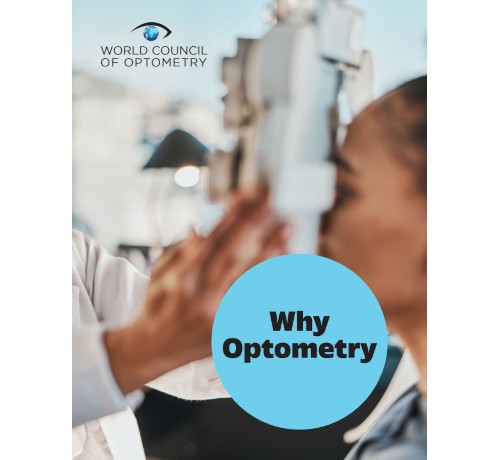Industry News
WCO Launches Updated "Why Optometry" Document to Address Global Vision Crisis
 The World Council of Optometry (WCO) has announced the release of its newly revised Why Optometry document, aimed at tackling the growing global vision crisis and reinforcing optometry's role in public health. With at least 2.2 billion people worldwide affected by vision impairment— one billion of whom suffer from preventable or untreated conditions— this report provides a compelling roadmap for integrating optometry into healthcare systems worldwide.
The World Council of Optometry (WCO) has announced the release of its newly revised Why Optometry document, aimed at tackling the growing global vision crisis and reinforcing optometry's role in public health. With at least 2.2 billion people worldwide affected by vision impairment— one billion of whom suffer from preventable or untreated conditions— this report provides a compelling roadmap for integrating optometry into healthcare systems worldwide.
A Call to Action for Eye Health Accessibility
Why Optometry outlines the urgent need for accessible eye care and optometrists' crucial role in addressing vision impairment. The document serves as a call to action for healthcare policymakers, regulators, and stakeholders to prioritize eye health as a fundamental component of universal healthcare by strengthening optometry education, legislation, and workforce expansion.
“With the release of the World Health Organization's World Report on Vision in 2019, a spotlight was put on the global problem of visual impairment. The Why Optometry document showcases how optometrists have a primary role in eye care, in addition to the appropriate skills and clinical knowledge to address this global issue,” says Dr. Michelle Piotrowski, lead author of the Why Optometry document. “The projected increase in devastating eye diseases such as glaucoma, diabetic retinopathy and macular degeneration means health systems need to integrate optometry effectively in order to enhance the accessibility and affordability of eye care worldwide.”
Bridging the Gap in Global Eye Care
The Why Optometry document highlights disparities in eye care access, particularly in low-income and rural communities, where a lack of trained professionals and financial barriers leave millions without essential services. With evidence-based strategies, WCO’s latest publication urges governments and organizations to enhance regulatory frameworks, invest in optometry education, and integrate optometrists into primary healthcare settings.
Key recommendations from Why Optometry include:
- Expanding optometry education and competencies to strengthen the global workforce.
- Advocating for legislative and regulatory advancements to support optometry’s role in healthcare systems.
- Promoting optometry-led initiatives to improve early detection and treatment of common eye diseases.
- Encouraging collaboration between private and public healthcare sectors to enhance service delivery.
“This document is an easy read for policymakers, regulators, and administrators to help them better understand the scope of what optometry does and the importance of being part of the healthcare team,” says Dr. Roger Jordan, WCO Legislation, Registration, and Standards (LRS) Committee Chair.
The World Health Organization (WHO) has recognized vision care as a critical component of public health. The Why Optometry document aligns with WHO’s World Report on Vision and the United Nations' Sustainable Development Goals, reinforcing optometry’s essential role in achieving universal eye health coverage by 2030.
WCO invites policymakers, healthcare providers, and the public to engage with the insights of Why Optometry and advocate for the implementation of its recommendations. The full document is now available for download at worldcouncilofoptometry.info/resources.



